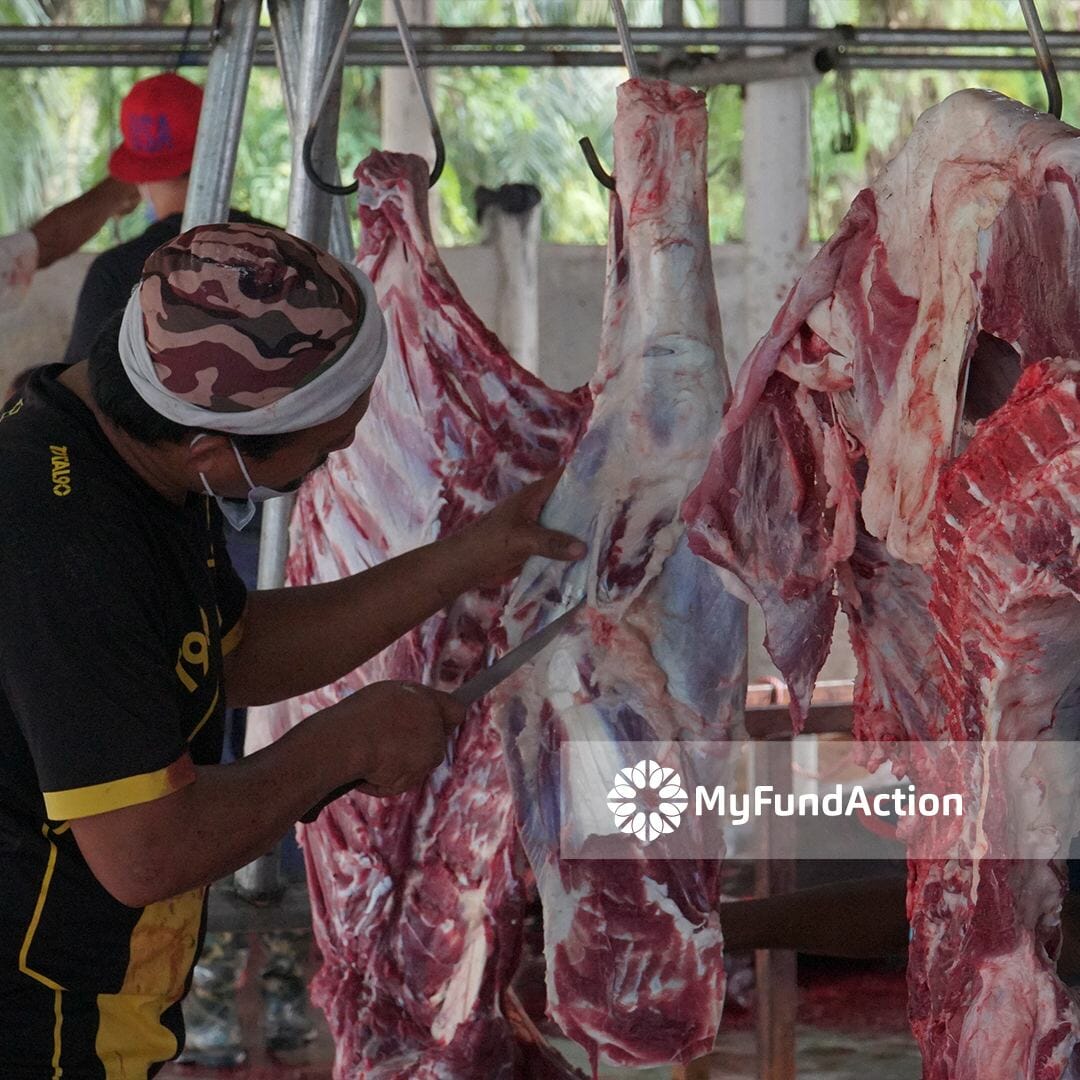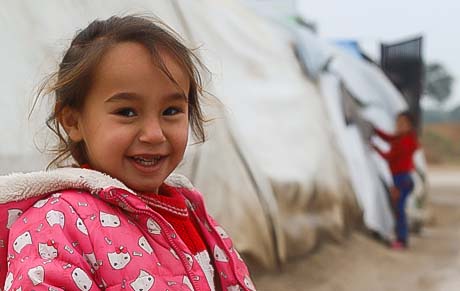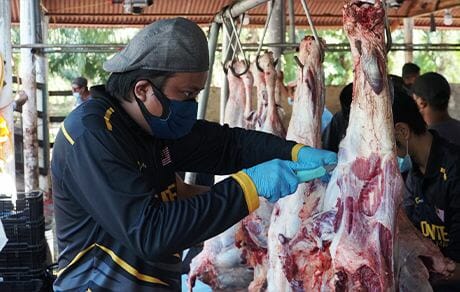At some point in your life, you might be wondering if you can perform a Qurban on behalf of someone who had passed away.
A member of your family might have passed away and you’d like to do a good deed on behalf of their name so Allah can reward them. Wouldn’t that be wonderful?
However, it is not always that simple. There are several things you need to be aware of before giving a Qurbani on behalf of the deceased–which we’ll explain in this article.
So without further ado, let’s dive right in.
 Yes, you are allowed to give a Qurbani on behalf of someone who passed away as long as the following conditions are met:
Yes, you are allowed to give a Qurbani on behalf of someone who passed away as long as the following conditions are met:
 Different Scholars and Madhabs have contrasting opinions about this topic.
Some of them, such as Hanbali Madhab, say it is permissible to sacrifice an udhiyah (animal for the Qurban ritual) for a deceased person. Hanbali jurists stated that the reward will nonetheless be given to the deceased, just like giving charity on behalf of them.
On the other hand, the Shafi’i says that a Muslim can’t sacrifice a Qurban for the deceased only. One of the biggest reasons is that Prophet Muhammad never did so, even for someone who is very dear to him, like Uncle Hamzah.
At MyFundAction, we believe that if something was never done by Prophet Muhammad, then we are not encouraged to do it.
And considering that Qurban is essentially recommended for any Muslim who still lives and is able to do it, we don’t encourage you to perform Qurban only for a dead person.
However, we fully support you if you have the resources to sacrifice two or more animals for yourself and your loved ones who have passed away.
Different Scholars and Madhabs have contrasting opinions about this topic.
Some of them, such as Hanbali Madhab, say it is permissible to sacrifice an udhiyah (animal for the Qurban ritual) for a deceased person. Hanbali jurists stated that the reward will nonetheless be given to the deceased, just like giving charity on behalf of them.
On the other hand, the Shafi’i says that a Muslim can’t sacrifice a Qurban for the deceased only. One of the biggest reasons is that Prophet Muhammad never did so, even for someone who is very dear to him, like Uncle Hamzah.
At MyFundAction, we believe that if something was never done by Prophet Muhammad, then we are not encouraged to do it.
And considering that Qurban is essentially recommended for any Muslim who still lives and is able to do it, we don’t encourage you to perform Qurban only for a dead person.
However, we fully support you if you have the resources to sacrifice two or more animals for yourself and your loved ones who have passed away.

Can You Give Qurban On Behalf of The Deceased?
 Yes, you are allowed to give a Qurbani on behalf of someone who passed away as long as the following conditions are met:
Yes, you are allowed to give a Qurbani on behalf of someone who passed away as long as the following conditions are met:
- The deceased’s wasiyyah states that he or she wants to offer udhiyah after their death
- The Qurban is performed on behalf of both the living and the dead, not on behalf of the dead only
“Udhiyah is Sunnah mu’akkadah for the one who is able to do it, so a person should offer the sacrifice on behalf of himself and the members of his household.” (Risaalat Ahkaam al-Udhiyah wa’l-Dhakaah)From this fatwa, we can learn that Qurban is prescribed to be offered on behalf of someone and/or the members of their household who are still alive. In other words, if you are able to perform Qurban, you have to do it for yourself and your family first. If, by then, you would like to offer Qurbani for the deceased, just remember that the ritual can only be performed under certain conditions, which we’ll discuss below.
It Is Written On The Dead Person’s Wasiyyah
Wasiyyah is a declaration regarding someone’s property and the management of it after their death according to Islamic law. In a wasiyyah, a Muslim can ask the beneficiary to do something, such as performing Qurban during Eid al-Adha on behalf of their name. As long as the beneficiary can do it, the wish should be granted because failing to do so would be sinful, as stated in Al-Baqarah (2:181):“Then whoever changes the bequest after hearing it, the sin shall be on those who make the change. Truly, Allah is All-Hearer, All-Knower.”In short, giving Qurbani on behalf of a dead person is permissible if it’s written in the deceased’s will.
The Qurban is Performed on Behalf of Both The Living and The Deceased
You can offer a Qurban for the deceased if you also offer a Qurban on behalf of yourself or members of your family who are still alive. This is actually a sunnah from Prophet Muhammad (Peace Be Upon Him) as he had been seen sacrificing an animal and offering it for himself, his family, and his ummah, some of which had been dead. This story is based on the following hadith:On the authority of ‘Aishah (RAA), “Allah’s Messenger (PBUH) ordered a horned ram with black legs, a black belly and black around its eyes, and it was brought for him to sacrifice and he said to ‘Aishah (RAA), “Aishah, get the knife.” Then he said, “Sharpen it with a stone.” When she had done so he took it, then taking it (the ram) he placed it on the ground and slaughtered it. He then said, “Bismillah (In the name of Allah), O Allah, accept it from Muhammad, Muhammad’s family and from Muhammad’s Ummah (followers).” (Then he sacrificed it.’) (Muslim, 1967)Note that if you’d like to perform Qurban on behalf of the deceased with a goat or a sheep, then you will need two of them–one for the deceased and one for the living. But if you want to sacrifice a cow or a camel, then one of those animals is sufficient as it can be shared by up to seven people.
Is It Allowed to Perform Qurban for The Deceased Only?
 Different Scholars and Madhabs have contrasting opinions about this topic.
Some of them, such as Hanbali Madhab, say it is permissible to sacrifice an udhiyah (animal for the Qurban ritual) for a deceased person. Hanbali jurists stated that the reward will nonetheless be given to the deceased, just like giving charity on behalf of them.
On the other hand, the Shafi’i says that a Muslim can’t sacrifice a Qurban for the deceased only. One of the biggest reasons is that Prophet Muhammad never did so, even for someone who is very dear to him, like Uncle Hamzah.
At MyFundAction, we believe that if something was never done by Prophet Muhammad, then we are not encouraged to do it.
And considering that Qurban is essentially recommended for any Muslim who still lives and is able to do it, we don’t encourage you to perform Qurban only for a dead person.
However, we fully support you if you have the resources to sacrifice two or more animals for yourself and your loved ones who have passed away.
Different Scholars and Madhabs have contrasting opinions about this topic.
Some of them, such as Hanbali Madhab, say it is permissible to sacrifice an udhiyah (animal for the Qurban ritual) for a deceased person. Hanbali jurists stated that the reward will nonetheless be given to the deceased, just like giving charity on behalf of them.
On the other hand, the Shafi’i says that a Muslim can’t sacrifice a Qurban for the deceased only. One of the biggest reasons is that Prophet Muhammad never did so, even for someone who is very dear to him, like Uncle Hamzah.
At MyFundAction, we believe that if something was never done by Prophet Muhammad, then we are not encouraged to do it.
And considering that Qurban is essentially recommended for any Muslim who still lives and is able to do it, we don’t encourage you to perform Qurban only for a dead person.
However, we fully support you if you have the resources to sacrifice two or more animals for yourself and your loved ones who have passed away.
Qurban on Behalf of Prophet Muhammad: Allowed or Not?
Now that you have learned you could give Qurbani on behalf of someone who died, you might ask, “Can I sacrifice one animal for me and another for the Prophet Muhammad?” While it’s true that the Prophet Muhammad (Peace Be Upon Him) died long ago, scholars and madhab believe that it is not permissible to perform Qurban on behalf of his name. The deed had never been done before by the Prophet’s Companions and he never requested it in his will, so it’s not something we are supposed to do. The logic behind offering Qurban for the Prophet (Peace Be Upon Him) may be that we hope we can get a high reward from Allah for us and for him. However, it is important to understand that the Prophet is infallible and will not incur any sin. Since the Prophet technically doesn’t need any good action from anyone to be done for him, we have to think about ourselves and our family first when it comes to sacrificing animals for Qurban.
Conclusion
Qurban is a very recommended deed in Islam with a very high reward for those who are able to do it. As Muslims, we can perform Qurban on behalf of ourselves who are still alive and on behalf of those who have already died. But there are requirements you have to meet before sacrificing an animal for a dead person:- The action is requested in the deceased’s wasiyyah (will)
- The Qurban has to be performed on behalf of the living as well




